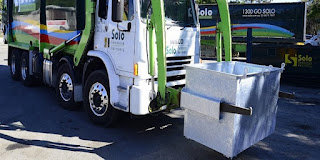Reasons Why It Is Important to Recycle Your E-Wastes Rather Than Landfilling
Everyone has e-waste in their homes or workplaces. That drawer, box or shopping bag in the closet is full of defunct MP3 players, broken tablets, old cell phones and obsolete chargers. It is your personal pile of e-waste. According to numerous reports from various agencies, the e-waste piles are only growing in size, forcing us to seriously consider e-waste recycling.
Recycling electronic waste (i.e. e-waste, also known as e-scrap) has become a progressively serious environmental issue as the functional life of e-devices shortens and the number of e-gadgets we use grows. While the benefits of electronic waste recycling are numerous, there is an urgent need to address pieces in the solid waste stream.
There are numerous factors
to consider when evaluating electronics recycling; however, the following are
the most important reasons why e-waste recycling is critical.
It is critical that e-waste
not end up in landfills. When electronic waste is improperly disposed of, it is
harmful to the environment as well as to people, according to the Environment
Protection Authority. Heavy metals and toxic substances can be found in
electronic devices. Cadmium, lead, and chromium may seep into the soil and
pollute the waterways as well as the air. The Environment Protection Agency
estimates that 60 million tons of electronic waste are generated globally each
year. Because recycling these toxic materials saves landfill space, some states
have passed laws prohibiting the disposal of e-waste in landfills.
Certain electronic devices
contain precious metals like gold, platinum, and silver, as well as aluminium,
copper, glass, and plastic. These metals could be reclaimed through the
recycling process. Many electronic devices are almost entirely recyclable.
Landfilling these metals would be poor management.
Because these precious
materials are being recovered directly from the recycling process, the demand
for new raw materials will be reduced. As a result, key natural resources are
conserved. According to the Environmental Protection Agency, a single metric
ton of circuit boards contains 800 times the amount of gold mined from a single
ton of ore.
The proper use of recycled
materials helps reduce greenhouse gas emissions generated when manufacturing
and processing brand new items, also known as 'virgin materials.' The more
recycled materials are available, the lower demand for virgin materials, which
means less contamination in new product manufacturing and processing.
Discarded e-gadgets can also
be kept out of the landfill if they are refurbished, re-purposed, and donated
to a worthy cause. A quick Google search will yield a slew of organisations in
most Australian regions that rebuild broken electronics and distribute them to
those who would otherwise go without. The transition from 'rebuild' to 'reuse'
is a critical component of keeping materials out of the waste stream.
Electronic waste may end up
in scrapyards, where it will be mixed in with cars, industrial scrap, and old
appliances handled by the scrap metal recycling industry. Each recycler has a
unique approach to dealing with all of these scraps; however, more progress is
being made in terms of extracting precious materials and moving these scraps
through the recycling process.
People are buying electronic
items in greater numbers than ever before. Every other day, faster, newer
technology is introduced, resulting in constant upgrades of e-equipment. This
also means that old computer models, gaming systems, and mobile phones are
being discarded on a daily basis. These now-unwanted e-products are referred to
as e-waste.
Disposal
of electronic disposal: Why recycle?
Most old e-devices contain
toxic substances such as mercury, lead, beryllium, cadmium, chromium, and
polyvinyl chloride. When electronic waste is disposed of in landfills, all of
these chemicals gradually leach into the soil, contaminating waterways and the
air. Electronics are made up of components that contain valuable raw materials.
Recycling old electronics saves energy. This also means that fewer raw
materials must be extracted from nature in order to create new devices.
Recycling old electronics
helps to reduce e-waste by keeping it out of landfills. This also conserves the
resources used to recycle them. Furthermore, recycling electronics benefits
other less fortunate members of the community. As a result, take all of your
old electronics to be refurbished (if and when possible) and give them new
life.
Finally, recycling conserves
raw materials that could be reused in the production of new gadgets. As a
result, power is saved, pollution is reduced, and fewer greenhouse gas
emissions are released into the atmosphere.
AWRC
will help you recycle


.jpg)

Comments
Post a Comment